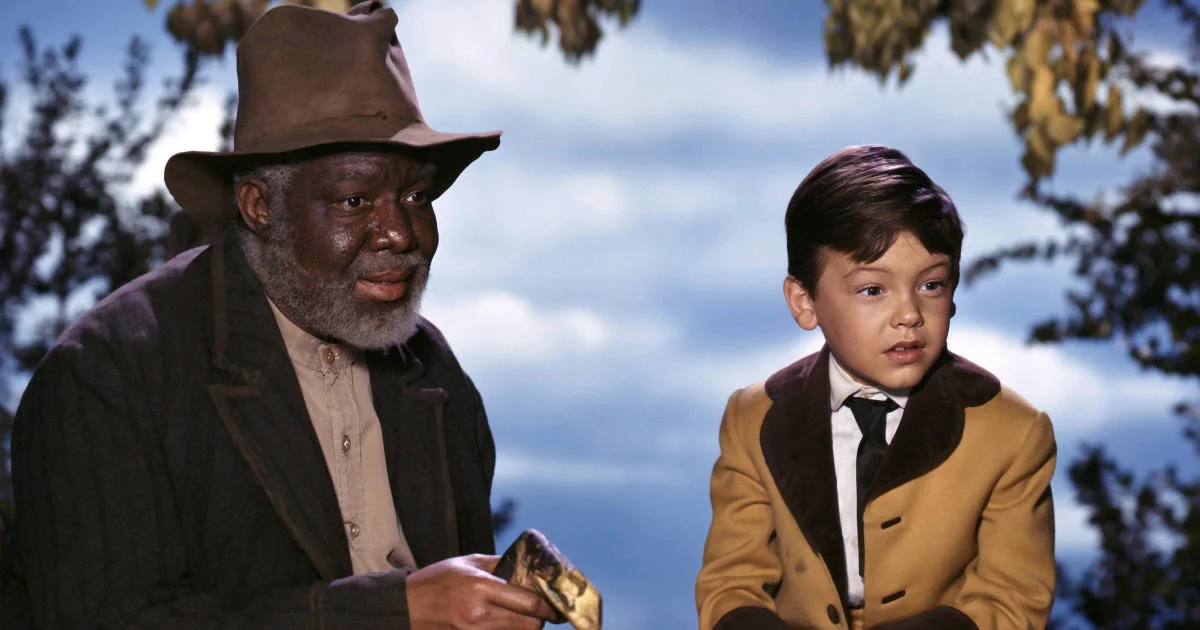Recently I procured a copy of the blacklisted Walt Disney classic Song of the South (1946) through eBay, and the movie was everything I remembered and nothing like I was led to expect.
What I remembered was being a thoroughly charmed and entertained six-year-old. That happened again at age 57 last week. Due to the absurd uproar over the movie, what I expected was nowhere to be found. Does Song of the South have some racial issues? Sure, but nothing that justifies Disney’s Orwellian erasure.Song of the South, poster, top: James Baskett, from top left: Br’er Rabbit, Br’er Fox, Br’er Bear, Br’er Fox, Br’er Rabbit, Br’er Fox, Br’er Bear on 1956. (LMPC via Getty Images)
Overall, Song of the South (like its source material) is about healing the rift between black and white America and does so in racially progressive ways unheard of in 1946.
Despite this fact, due to thin-skinned and wildly misinformed criticism, Disney has blacklisted Song of the South since 1986—the last time it enjoyed a theatrical release. What’s more, the movie’s never been released on home video in America. Not even on laserdisc or Betamax.
Trust me; there’s no moral justification for this.Song of the South is about seven-year-old Johnny (played by the sadly doomed Bobby Driscoll), who’s told he’s about to enjoy a vacation on his grandmother’s Georgia plantation. The truth, though, is that his parents are having problems. Dad is going away. This explodes Johnny’s security and leaves him without a father figure.
Before arriving, Uncle Remus (James Baskett) and his storytelling abilities are already legendary to Johnny, and his meeting with the legend does not disappoint.
To help Johnny work through his various problems, Uncle Remus uses parables—black folktales starring Br’er Rabbit (voiced by Johnny Lee in two sequences and Baskett in one). These delightfully funny animated sequences co-star Br’er Rabbit’s nemesis Br’er Fox (Baskett again) and Fox’s sidekick Br’er Bear (voiced by Nick Stewart).
There are a total of three cartoon parables. The first reminds Johnny (and us) that you can’t run away from your troubles. The second (the tarbaby) teaches Johnny not to manufacture problems for himself. The third teaches Johnny to use his brain instead of his fists (especially when outnumbered).
Not only is Song of the South a wonderful movie full of important life lessons—especially about forgiveness and honesty- but plenty of movies with worse racial issues are available everywhere today. Off the top of my head… Willie Best’s Algernon character in High Sierra (1941), the “Abraham” sequence in Holiday Inn (1942), and the Mickey Rooney scenes in Breakfast at Tiffany’s (1961)… All you can do is shake your head and wait it out.

Leave a Reply